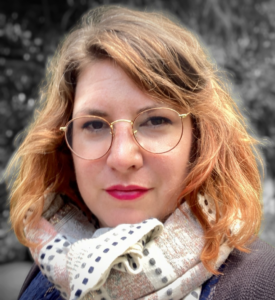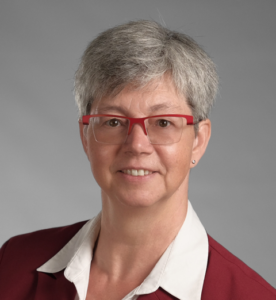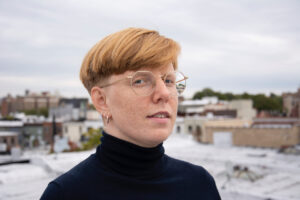Invitation to the DHSS lecture series
The Department Digital Humanities and Social Studies offers a lecture series on different topics related to the Digital Humanities. The lectures take place in loose succession. External researchers are invited to join us at the FAU and share their work and experience from different fields of work and projects.
Everyone interested is invited. Please note that the talks will be held in german!
The dates for upcoming and past events as well as their locations can be found down below.
Wintersemester 2023/24
Cranach Digital Archive – Networked research on the way to a digital catalog raisonné
Lucas Cranach the Elder is not only one of the most famous artists of the German Renaissance, but also undoubtedly one of its most productive. In October 2009, eight major museums in Europe and the USA, together with the Museum Kunstpalast in Düsseldorf and the Cologne University of Technology, began a research project to digitally index the works of Lucas Cranach the Elder, his sons and his extensive workshop. The lecture describes the structure of the online database as well as its current research focuses and traces the path of data flow: from the generation of art historical and art technological data using new imaging processes, to the management and organization of this information in the TMS database, to the preparation and presentation in the live version of the Cranach Digital Archive (lucascranach.org).
About Daniel Görres, M.A.
Daniel Görres M.A. studied art history at the Rheinische Friedrich-Wilhelms-Universität Bonn, he is a winner of the Deubner Prize for current art historical research, scholarship holder of the Gerda Henkel Foundation, Düsseldorf, research assistant at the Cranach Digital Archive from 2012-2018, curator of the exhibition “Cranach. Master – Brand – Modernism” at the Kunstpalast Düsseldorf, 2018-2022 project coordinator of the research project “Critical Catalog of Luther Portraits (1519-1530)” at the Germanisches Nationalmuseum Nuremberg (in cooperation with the FAU Erlangen-Nuremberg), scientific project coordinator at the Cranach Digital Archives since 2023.
Knowledge to your ears. A look behind the scenes of #arthistoCast, the academic podcast on digital art history
How can we break down the inhibition threshold for art historians who have hardly ever dealt with digital methods or processes? And how can this be done in the most entertaining and informative way possible? These questions led to the scientific podcast #arthistoCast – the podcast on digital art history.
Raising awareness for digital literacy was also on the agenda. In the lecture Jacqueline Klusik-Eckert will provide insights into the conception and implementation of the science podcast #arthistoCast. She will not only take a close look at the concept, but also reflect on the podcast format as a medium for digital science communication.
About Dr. Jacqueline Klusik-Eckert

Jacqueline Klusik-Eckert studied art history and modern German literature in Erlangen and Bern. After completing her master’s degree, she wrote her doctoral thesis in art history on the topic “Transfer von Bildideen: Zur Kultur des Kopierens in der rudolfinischen Malerei und der Rezeption von Bartholomäus Spranger (1546–1611)”. At the same time, she worked on a project at the Germanisches Nationalmuseum in Nuremberg and later as coordinator of Digital Humanities and the IZdigital at FAU Erlangen-Nuremberg. She received the scholarship for excellent young researchers from the Free State of Bavaria and a publication prize from the Working Group on Dutch Art and Cultural History. Since September 2022, she has been project coordinator of “KI für alle” at HeiCAD at Heinrich Heine University Düsseldorf. In addition to art around 1600, her research areas are the methodological history of digital art history, AI literacy and reception theory. She also researches methods and the further development of knowledge transfer and science communication.
Quo vademus? Models of spatial behavior based on spatial cognition.
Human mobility as a special spacial behavior requires a robust but also flexible space cognition. In the interdisciplinary research area of spacial cognition, structures and processes of environment-related information processing in humans and machines are examined. It is particularly challenging to design models of human information processing so that we can use them in robots, for example. In this talk I will introduce the construct of geo-savvy agents, which contain concepts of spatial cognition as implemented models and are used to simulate human mobility. The presentation of this research is framed by application scenarios from various sub-areas of the humanities: mobility in the pre-colonial Amazon, navigation in Tolkien’s maps and the appropriation of space in urban green spaces.
About Prof. Dr. Sabine Timpf

Prof. Dr. Sabine Timpf is Professor for Geoinformatics at the University of Augsburg.
Border Sonics: An Analysis of the use of media technologies, data and voices in asylum and border regimes.
Amidst the contemporary political discourse of transnational migration as a crisis, nation states are increasingly using so-called “smart” digtal media technologies to control and manage the autonomous mobility of people. In this talk I examine the introduction and usage of automated dialect recognition in asylum procedures in Germany and Europe and look at how voices are transformed into data. The voice that has been processed into data is replacing testimonies from asylum seekers more and more and is thus causing a shift in the evidence regime in asylum examinations. I show how the recognition of dialects attempts to make people, mobility and geographies audible by fixating on and using the voice as an index of identity.
The dialect recognition thereby fixes territorial borders, which are however marked by **multiple mobility** and colonial history – a process I refer to as “border sonics”. Drawing on ethnographic and archival research, I argue that the current proliferation of data-driven, algorithmic, “smart” technologies must be situated within colonial genearlogies of production of race and cultural difference that classify and encode voices and languages. In addition to that, the **Erprobung** and testing of technologies for border and migration control serve the innovation of voice and speech recognition technologies in general, making it necessary to put transnational migration at the center of research on digital media technologies, race and data.
About Dr. Michelle Pfeifer

Dr. Michelle Pfeifer is a research assistant at the chair for digital cultues at the TU Dresden. Her research lies at the intersections of (digital) media technology, migration and border studies as well as gender and sexuality studies and explores the role of media technology within fights about mobility and migration in Europe.
Michelle holds a PhD from the Department of Media, Culture and Communication at New York University and is currently working on two research projects. On the one hand, her book manuscript “Data on the Move: Voice, Algorithms, and Asylum in Digital Borderlands”, which takes the so-called refugee crisis as a starting point to examine how algorithmic and acoustic media infrastructures can be used for migration control, border surveillance and asylum administration on a planet where global displacement has become the new norm. On the other hand, she is currently working on the research project “One Million Refugees: Numbers and the Sexuality of Statistics” which analyzes the production and circulation of numbers in migration statistics and the figure of the population as part of European demarcation practices.
Michelle’s research has been published in Citizenship Studies, Culture Machine, and the anthology Thinking with an Accent from the University of California Press. She was co-editor of the special issue “The Sexual Politics of Border Control” in Ethnic and Racial Studies and is currently a representative of young scholars in the Philosophy, Theory, Critique division of the International Communication Association.